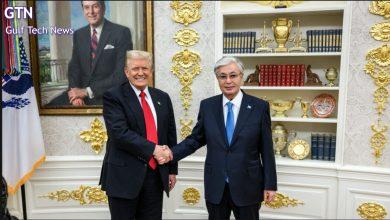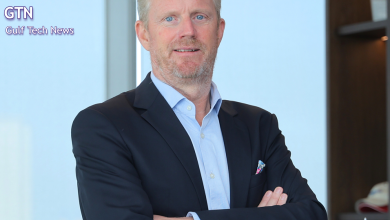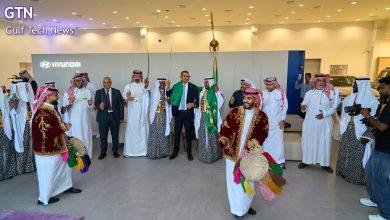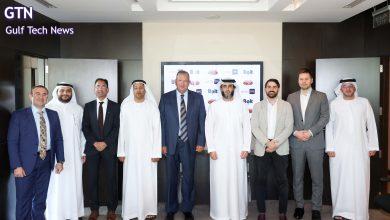Opening AIF 2025…Tokayev Calls for Dialogue, Conflict Resolution, and Constructive Global Engagement
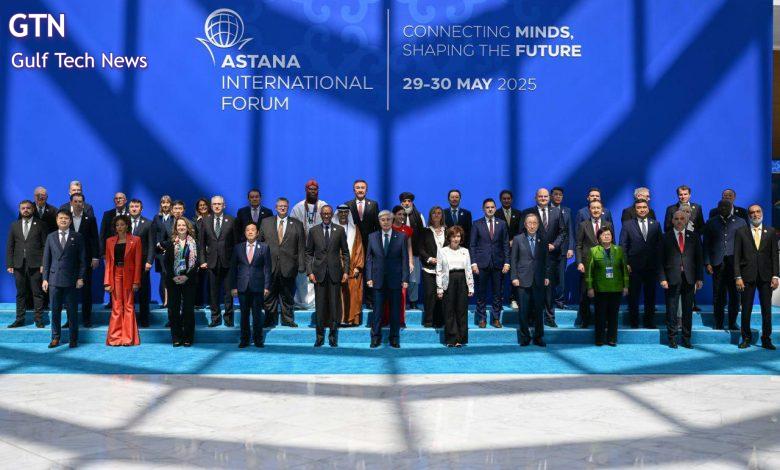
Astana – Kazakh President Kassym-Jomart Tokayev affirmed that Kazakhstan views today’s turbulent global environment through the lens of constructive engagement. He warned against the escalating threat of nuclear weapons use, and in his keynote speech at the opening session of the Astana International Forum 2025, held Tuesday in the capital, underscored the deepening complexity and longevity of modern global conflicts. He called for prioritizing dialogue over division, and emphasized the importance of respecting the sovereign rights of all nations.
Speaking at the high-profile event titled “Connecting Minds, Shaping the Future,” Tokayev addressed an international audience that included President Paul Kagame of Rwanda, President Gordana Siljanovska-Davkova of North Macedonia, former UN Secretary-General Ban Ki-moon, as well as numerous global experts, business leaders, and high-ranking government officials.
“We are gathered here today at a pivotal juncture in human history, amid profound global uncertainty,” Tokayev began. “While some may interpret this moment as a crossroads or a turning point in international relations, we believe such labels are best left to future historians. What truly matters now is our response to this reality — it lies in the choices we make and the values we uphold.”
He pointed out that conflicts and wars remain rampant across continents and societies, and said:“In the past year alone, armed conflicts were recorded in 52 countries worldwide. The economic cost of violence reached nearly $19 trillion, or roughly 13.5% of global GDP. But beyond the data, we face a far more disturbing truth: modern conflicts have become more intricate, protracted, and deeply entrenched, often involving multiple stakeholders — including non-state actors — and fueled by long-standing grievances and perceptions of injustice.”
The Kazakh president drew attention to the transformative role of artificial intelligence, describing it as a game-changing force in shaping the future: “Amid these overlapping crises, artificial intelligence has emerged as a transformative force — reshaping our world, introducing new ways of thinking and problem-solving, and rendering obsolete many traditional assumptions and divisions. In this fast-evolving environment, military conflicts driven by historical resentments or political enmity appear not only outdated, but also dangerously misplaced.”
He emphasized the historic nature of the choices facing humanity today:
“In this decisive moment, it is the choices we make and the principles we defend that will chart our course forward. Artificial intelligence is not just a technological innovation — it represents a fundamental shift and a chance to embrace innovation, helping to build a future rooted in enduring peace and inclusive global cooperation. We must not allow this opportunity to remain an abstract dream — we must turn it into concrete reality.”
Tokayev reaffirmed Kazakhstan’s commitment to a foreign policy rooted in dialogue, mutual respect, and multilateralism: “Kazakhstan’s foreign policy is firmly anchored in the belief that dialogue must take precedence over division, and that sovereign rights of states must be fully respected. We reject all forms of national arrogance and any disregard for the cultural and historical traditions of other peoples. At the same time, it is essential to uphold the right of national minorities to speak their own languages and preserve their cultures. This is why Kazakhstan adheres unwaveringly to the principle of ‘Unity in Diversity’.”
On nuclear weapons, Tokayev issued a stern warning, drawing on Kazakhstan’s painful historical experience:
“The risk of nuclear weapons use — whether through miscalculation, accident, or military escalation — is a threat we cannot ignore. A single nuclear explosion could lead to devastating consequences. Scientists warn that the fallout would not be confined to immediate destruction but could also trigger global climate disaster and wipe out agricultural production on a massive scale.”
He added:“Kazakhstan understands this risk better than most. We continue to suffer the long-term consequences of 450 nuclear tests conducted on our territory during the Soviet era. In pursuit of peace, we voluntarily renounced the nuclear arsenal we inherited. Today, we continue to champion the cause of non-proliferation of nuclear and biological weapons.”
President Tokayev concluded his speech with a call to confront today’s multi-dimensional global challenges with unity and cooperation: “We must recognize that global security threats extend beyond geopolitics. The global order is in flux. Protectionism is on the rise, and multilateralism is in retreat. In such a volatile environment, our most urgent responsibility is to preserve and rebuild international cooperation — to ensure it survives and thrives, even when it comes under threat.”


